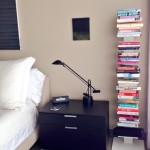Ask any writer what books on writing they would recommend to others and you’re bound to get Stephen King’s On Writing and Anne Lamott’s Bird by Bird.
Fair enough, those are both great books. But, hello? They are not the best books for craft.
Over the past five years, I’ve been teaching myself how to write. I call it a self-inflicted MFA. I’ve written nearly every day (just like King and Lamott told me to) for one to eight hours a day, plus I’ve read a few hundred books, many of them on the skill of writing well. It’s definitely harder than it looks.
One thing that seems obvious in our bottom-line, cash-is-king world, is that the story trumps the skills. If someone has a killer $tory, a publisher will buy it, and so will the public. We all know who I’m talking about (ahem, Stephenie Meyer and E.L. James). (And yes, I know, they’re laughing at my list on the way to their Swiss Chalets.)
For those of us who want to be proud of our writing, who truly care about lyrical phrases and sympathetic characters, here is my list of recommended books on writing. (I have no reason to endorse these books other than I found them to be the most helpful. I am not getting paid for recommending them.)
1. The Elements of Style, by Strunk and White: This is not just an old reference book. If a person wants to begin writing, or is trying to figure out why their writing is getting rejected, this is the book to read first. These are the basic rules of the craft.
2. Story Engineering, by Larry Brooks: This book might be a bit controversial; it’s certainly arguable. Ok, here’s my argument: This book teaches the structure of a novel. If a writer considers herself to be an “organic writer,” and likes to let the words flow, let the story tell itself thru her fingertips, she ain’t gonna like this book. I still say read it, and keep Brooks’s ideas in the back of your head as you formulate your book as a whole. Brooks delineates the nine milestones every successful novel must have, just as Blake Snyder did in Save the Cat, a similar book for writing screenplays. Unfortunately, Larry Brooks seems overly defensive about his theory/opinions which nearly undercuts his idea… but I still think the structure of a novel is vital.
3. How Fiction Works, by James Wood: You’re going to have to have your thinking cap on for this deceivingly simple little book. This is possibly the most dense, erudite, non-fiction book I’ve ever read, but it was well worth the effort. The book covers 123 separate instructions. Buy the book, and even if it takes years to get through it all, read Numbers 7 – 16 on Free Indirect Style, and Number 119 on Hypotyposis (yeah, now you get the part about your thinking cap.) Buy the book.
4. Hooked, by Les Edgerton: Ok, so if you are a writer, or you want to write, you probably have a rough draft of a novel, or maybe short story by now. If, after you’ve read the first three books on this list, you’re still not sure your book’s going to sing, read this one. Every writer loves her characters, cares deeply about them—otherwise how could she spend months if not years telling their story. But how does a writer make an agent care? An agent will never read more than one (maybe five) pages of a submission if he/she doesn’t love your characters immediately. Edgerton tells you how to hook the reader on page one, and two, and three… You get the picture, now buy the book.
5. Self-editing for Fiction Writers, by Renni Browne and Dave King: True story here: I bought this book several years ago, thumbed through it, then placed in on my shelves in perfect alphabetical order among my writing reference books. Recently, I attended the Jackson Hole Writers’ Conference in order to further hone my craft. It cost me nearly $2500, but it was a wonderful, valuable experience. And the most valuable thing I learned? Read this book, the one I’ve had on my shelf for years. (Doh!) This book finally explained how to separate third person POV from omniscient POV, something I’d been screwing up all these years. And that’s just for starters.
Now, anyone who knows anything about the publishing industry will tell you that it’s all a big crapshoot. An MFA grad from the Iowa Writers’ Workshop might never publish a book as successful as The Help. Heck, I doubt Stephenie Meyer has read any of the books on my list, yet her story idea was a goldmine.
So what’s the real secret? No one really knows, unless… Wait, maybe this list of books is the secret, and no one has ever written it before because they’re trying to cut down on the competition! Oops.
Have you read any of these books? Do you agree, disagree? What books would you add to the list? Maybe there’s one more book on writing out there that I should read.
A P.S. from Yours Truly: When I originally posted this post, a lovely reader named Cynthia Robertson (see below) suggested Francine Prose’s Reading Like a Writer. I have since read that book and I would definitely include it in my list of Best Books on Writing. I don’t want to eliminate any of the above, so I now have six books in my top five! I can do that because it’s my blog. Read it and I think you’ll agree! Thanks, Cynthia!


